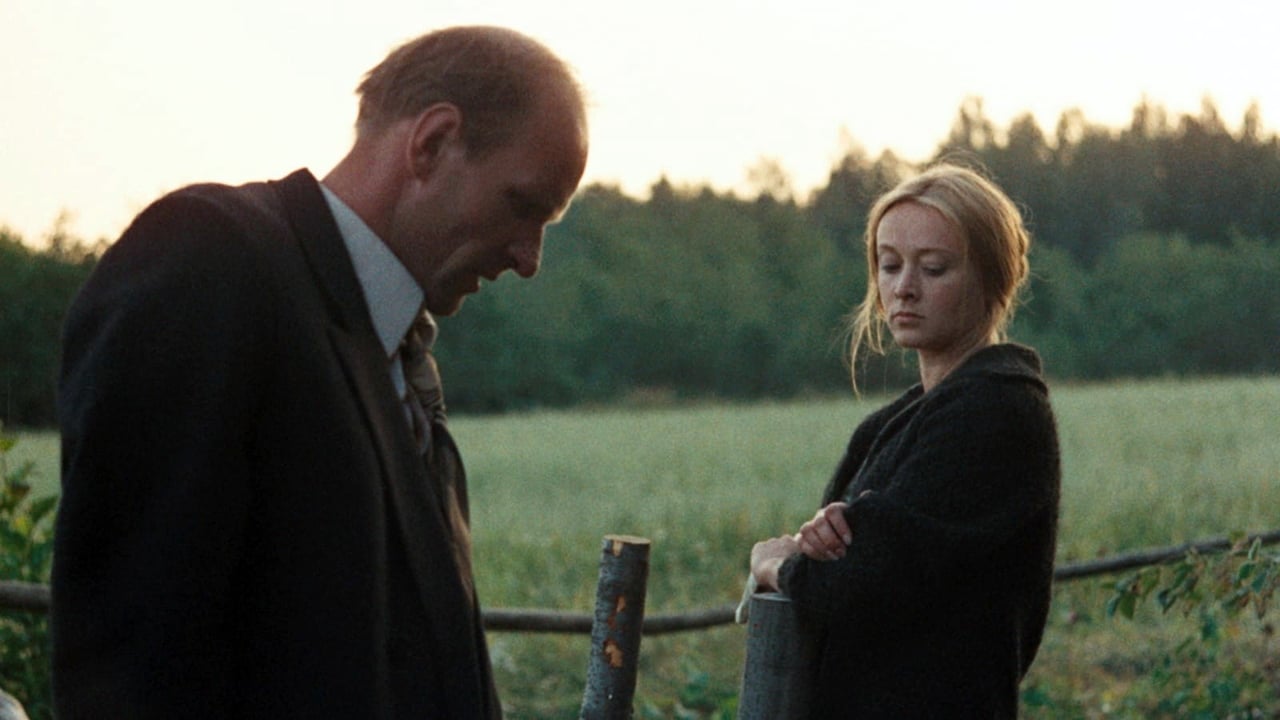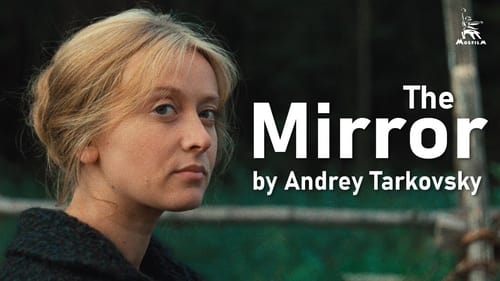



Nice effects though.
After playing with our expectations, this turns out to be a very different sort of film.
View MoreThe joyful confection is coated in a sparkly gloss, bright enough to gleam from the darkest, most cynical corners.
View MoreIf you're interested in the topic at hand, you should just watch it and judge yourself because the reviews have gone very biased by people that didn't even watch it and just hate (or love) the creator. I liked it, it was well written, narrated, and directed and it was about a topic that interests me.
View MoreTHE MIRROR is another art-house drama by Russian director Andrei Tarkovsky. I'm no fan of this guy, so I'll keep my thoughts brief. In terms of visuals, this film is very good, well thought out, with carefully constructed compositions and the like. Tarkovsky would make a good painter and his style reminded me a little of Herzog's HEART OF GLASS. As for the rest, it's typically long-winded, personal, boring, and familiar from the rest of his work. The characters are dull and the plot events strive for meaning but feel quite obtuse. The only part of this I found interesting from a historical perspective is the segment detailing Communist China.
View MoreA dying man in his forties remembers his past. His childhood, his mother, the war, personal moments and things that tell of the recent history of all the Russian nation.Tarkovsky is probably the greatest Soviet / Russian director of his generation. Indeed, who else even comes close? If you were to list the top Russian directors of all time, Tarkovsky would be right near the top, perhaps only beaten by Eisenstein.He has a science fiction and fantasy way to look at the world, and even in more realistic films like this one, that sense of wonder comes through. Few other directors would "paint" their scenes like this, out of order and in different colors (or lack of color). He is someone who ought to be studied, and surely is.
View MoreTarkovskii's Mirror is profoundly episodic in that it consists almost exclusively of dredged up memories, real or imagined, from the life of the central figure, Alexei. The structure is nonlinear, but the viewer never seems to get caught up on the slight confusion created by this. The only aspect that truly hinders understanding is the decision to have Terekhova play not only Alexie's wife but also his mother; one is always a little unsure of which time sequence the film is in. This uncertainty can only be intentional as it enhances the overall theme of the fallibility of human memory. The viewer, however, is oftentimes too distracted by Tarkovskii's beautiful sequences to mind having to untangle the nonlinear plot. The camera follows characters like an unseen eye, although occasionally veers off to focus on a seemingly-unrelated poetic image, like a vase that slowly falls off the edge of a table. The color cinematography saturates the world in a dreamlike palette, such as the early scene in which Alexei's mother sits on a fence in the Moscow countryside. When Tarkovskii switches abruptly to sepia and black and white tones, it's hardly noticeable, and is remarkably well done. Surrealist elements are interspersed, such as the scene in which Maria washes her hair as plaster falls all around her and water floods the house. These instances, combined with the occasional poem narrations, make the disjointed remembrances even more dreamlike. At the end of the film, it is still unclear what exactly the viewer has seen, and another viewing is necessary. The memorable scenes stick in one's head just as much as casual pans of the camera. Tarkovskii's Mirror is full of something, and it's just not clear yet what that something is.
View MoreThe Mirror is a poetry of images and motion. It's the kind of film that probably needs to be seen several times to understand, but its enjoyable even the first time thanks to the imagery and atmosphere it can create. Instead of a traditional plot, this movie speaks through symbols, again much like a poem. Rather than following any linear story, the scenes are taken from various places in time featuring a handful of characters, and other scenes taken from documentaries spliced in between.One of the most interesting elements is the camera. It moves like a ghost throughout the movie- gently gliding across extended single shot scenes, and sliding across characters and their reflections. Interestingly it maintains this effect when its shown from the first person, and other characters are addressing the character whose point of view were looking from. This is why I said the camera is like a ghost, because most of the movie is filmed like this it's as if this character behind the camera is always there, which is even made possible because the camera is capable of walking across dream-like sequences as readily as real ones.One of the earliest scenes in the movie is of this time, and summarizes why this movie is so engrossing. After the scene of a house burning down in the rain, there is one of a woman washing her hair, which is ordinary on the surface but a very eerie atmosphere is created because of her very slow movements and the hair covering her face. The tension is brought up dramatically from the surroundings: walls scarred by flames but dripping with moisture. A connection is made to the burned down house from earlier, and later scenes in the movie take place in buildings with similar walls. Links such as these between disparate scenes of the movie create this impression of a poem, where all these separate elements where put in place to create a single meaning, but what that is is largely up to the audience to discover.There are many more examples throughout, but that is just a glimpse of the atmosphere that makes this movie so interesting to watch even the first time.
View More